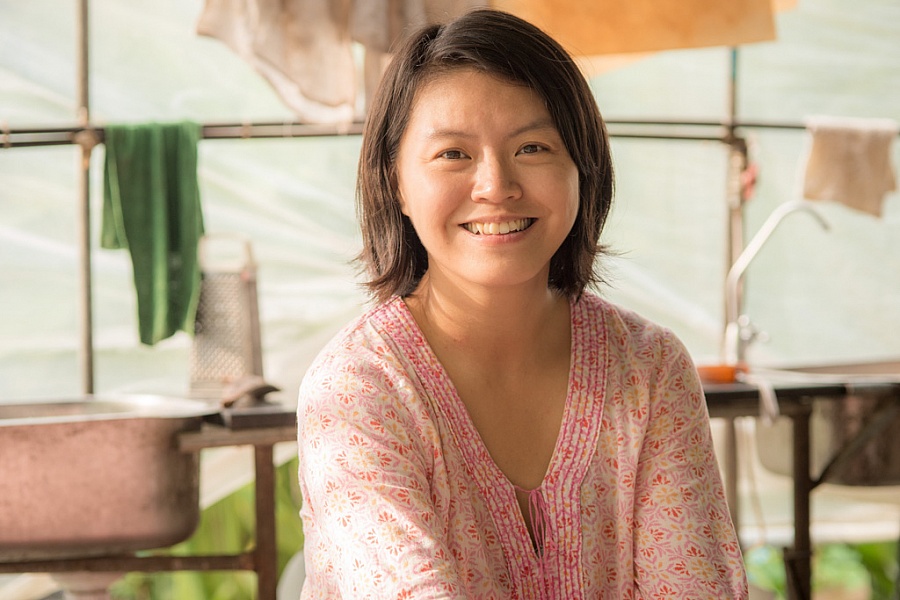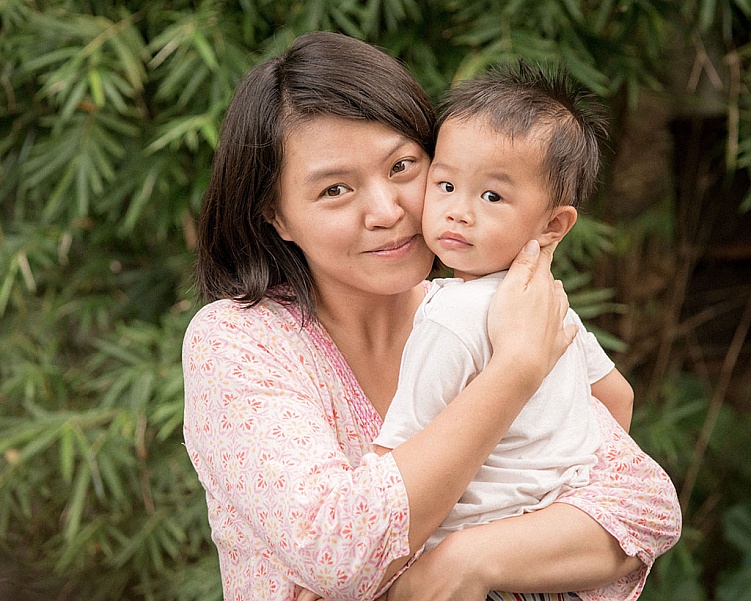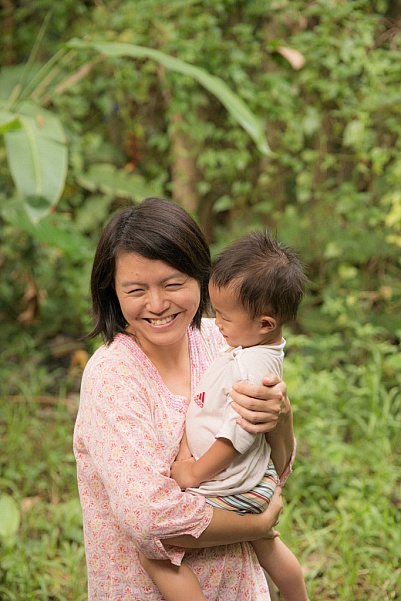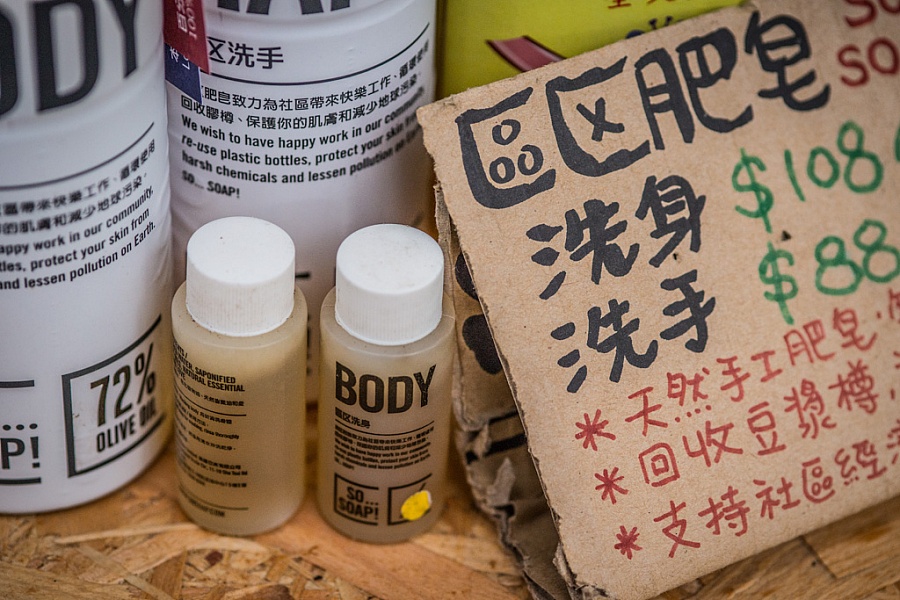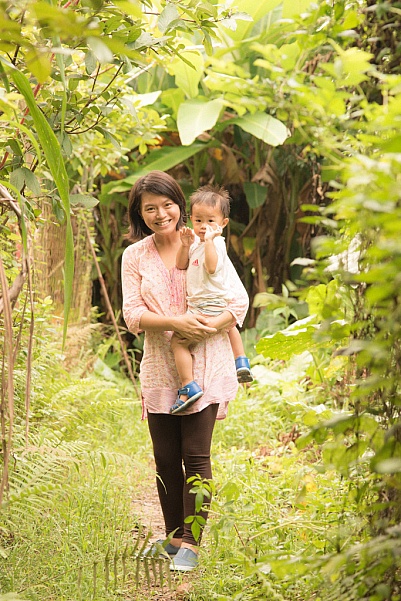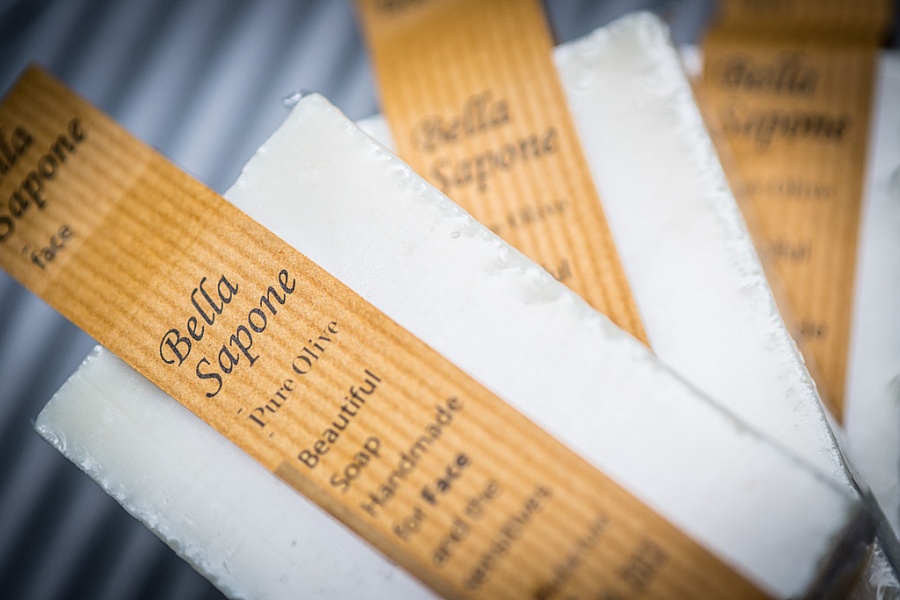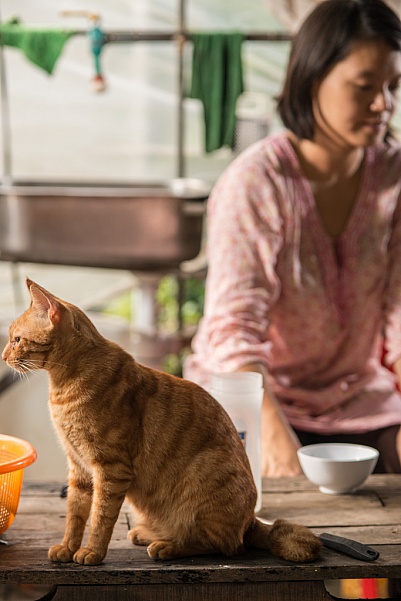Dear Diary,
Bella Ip Chi-kiu is someone who is very honest with her own feelings and beliefs. She decided to travel around the world on a 70-feet sailboat when she was only 19, and she went on to live in various island countries in the South Pacific for three years.She also spent some time in Sichuan before returning to settle downin Hong Kong with her daughter who is now 10 years old. She is someone who trusts her instincts and will go all out for something if she believes in it, and it is with much self-belief that she started her own soap-making business in 2008 while raising her children in a way that most in this city would probably find unconventional.
In the beginning, she did not set up her community-based soap-making business because of any particular urge to create an ethical product. Rather, it started off from a very practical need – finding a job in order to make a living. “I came back to Hong Kong from Sichuan in 2007. At that time I needed a job, so I set five criteria for the job that I want: it doesn’t pollute the environment; it doesn’t worsen social problems; it supports local products; it generates local employment; and it gives flexible working hours,” said Bella.
While she was searching for her ideal job, she worked as a secretary in a Band 3 secondary school (a school with low-performing students), so that she could earn some income.Part of her job was to call up parents whose children were skipping school; gradually,she befriended the truants and started to understand more about why they would skip school or were even taking drugs. She said:“The fact that some students decided to skip school and take drugs reflects a lot of social problems that the flawed education system has failed to address. At the same time, alternative education is very expensive in Hong Kong. However, among all problems, the inability of parents to spend time with their children is the chief reason why these children no longer want to go to school and started taking drugs.”
She then asked: “Why was truancy or drug-taking less of a problem in previous generations? That’s because in the old days, mothers worked at home, making plastic flowers or sewing clothes as a back-up workforce for factories. This flexibility for them to multi-task at home meant that they could work and take care of their family simultaneously. It also gave the women more financial security.”
Bella drew inspiration from the home-based working mums of mid-20 century Hong Kong, and she soon zoomed in on soap, a key household item, and one that fit all five criteria that she set out for her ideal job. She assessed the risks of starting a soap business and decided that in the worst case, she would only be left with crates ofsoap-making ingredients for the rest of her life. So, by trusting her feelings again, she took out a bank loan and founded her own soap brand. No less importantly, her project is run with a team of soap makers who are all mothers from the area where she lives. With this project, the mothers can work locally and flexibly, so they still get to spend enough time looking after their families.
After 30 months of hard work, Bella has finally repaid all the bank loans she borrowed to start up her brand. Her soap products can now be found in a number of places including Lane Crawford, though her ultimate goal is to have community-based soap making in every district in Hong Kong.
You can say her soap-making business is a big project that demonstrates Bella’s commitment to sustainable development in Hong Kong. Equally, it is underlined by her philosophy about how she wants to raise her children.
Bella gave birth to her son, who will be two years old soon, at home. She said:“The hospital is such an unsuitable place to give birth. The air-con is so cold, the lights are too bright and you have to be separated from your baby immediately after giving birth, and there are too many complicated procedures attached to it.” A lot of her friends also gave birth at home. On breast-feeding, she thinks it is important that she provides her children what a woman is naturally ‘designed’ to provide –love and care to their offspring. She believes that by giving birth at home, she was able to provide the intimate love of a mother to her child from day one. During our interview, she was very much at ease breastfeeding her son despite our presence. She really cherishes what she can give as a mother.
Bella also has her own ways of bringing up her daughter. She calls it a ‘free-range’ upbringing. For example, she doesn’t push her daughter with her homework, and she would even let her miss school every now and then. She said that children are already spending whole days at school studying, so they should do something else when they get home. From her experience, the less she asks about her daughter’s school life and homework, the more effort her daughter puts into them.
Bella said that giving her daughter the space to learn how to find solutions to day-to-day problems that any child could encounter in school or in the playground for instance is very important to her upbringing. Her view is in sharp contrast to how a lot of parents choose to be extremely protective of their kids and hence spoil them. Bella’s daughter once drew a very simple comic book, made many photocopies of it, and sold them for $5 each from a market stall at Mapopo Farm in Fanling (a farm that promotes organic farming and green lifestyles). Those who bought multiple copies were also given a free balloon. In the end, she earned more than $100 in profit. She was only 10 at the time. “From that exercise, I could tell my daughter knows how to find solutions in her life, and I am reassured that she can take care of herself when she grows up,” said Bella. “Although I don’t fit the typical definition of a good mother, I allow my daughter to grow up by learning how to take care of herself, and I’m always supportive to her. I don’t want to put my daughter into a greenhouse. All I do is to try to provide a safe environment for her to grow up by herself.”
What do you like the most about Hong Kong?
Hong Kong is a very compact city. From IFC it only takes 20 minutes to get to Lamma on a ferry. It is very rare for any city in the world to have such easy access to rural areas. However future property developments may kill some of our lovely countryside. The government seems to be resistant to countryside conservation and they’re only keen about promoting Chinese-style economic and city development. Having accessible countryside in Hong Kong means this is a very diverse city.
What do you dislike the most about Hong Kong?
Hong Kong’s increasing integration with mainland China, and the problem is not just about economic integration. Even at the practical level, there are so many unresolved issues. A father of my daughter’s classmate, who’s a man from mainland China, had just committed suicide, and it just shows there are a lot of issues that these new mainland Chinese migrants are facing in this city, with cultural differences for instance. Hong Kong’s increasing integration with mainland China is caused by Hong Kong’s inability to survive on its own economically. However there are actually a lot of small businesses in Hong Kong that can help us build a sustainable economy, but it’s just that there isn’t adequate policy support for them from the government because they are basically considered irrelevant. The government’s focus is only on the mainland, and not Hong Kong.
What does Hong Kong have to do to be sustainable?
We always talk about ‘organic this and that’, but ‘organic’ is only one part of sustainability, not all of it. If a food item is organic but it’s shipped from afar, it’s not sustainable because of the carbon footprint it generates. Sustainability is not about consumption, but it is about how one lives. It is also about the spiritual happiness of a person and this is very important for everybody in Hong Kong.
